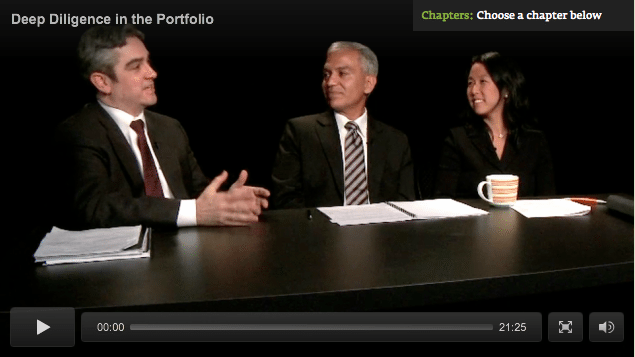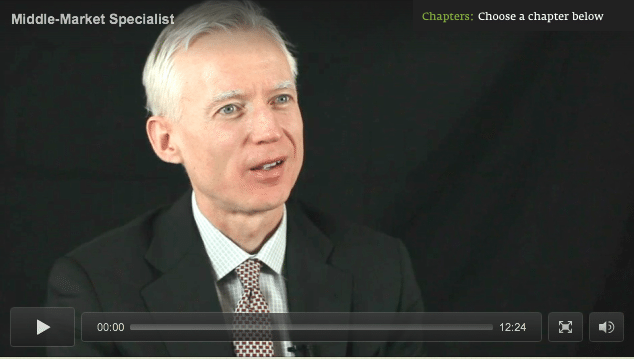Air Guitar
Is your fund manager a true investment rock star or merely good at playing the role?

For a very long time, it seemed that just about every private equity general partner was rocking and rolling. Now that the music has stopped, too many of them are still up on stage, silently wanging away with frantic hands and grotesque facial expressions.
Yes, it turns out that many private equity fund managers were playing air guitar. The term “air guitar” should be familiar to all, because we have all done it, although not all of us will admit to this. It is the act of silently mimicking the moves of actual rock guitar music. Some people are actually very inspiring air guitarists. Banging one’s head, baring one’s teeth and strumming a succession of floating bar chords confers upon the air guitarist and his audience a modest sense of musical glory. But it is not to be confused with actually producing sounds from a real guitar.
What is private equity air guitar? It is the act of claiming value-add glory when in fact your returns are being driven by factors well outside of your control. The challenge for investors over the next economic cycle will be to separate the private equity firms that are actually capable of adding value from those that merely have had value thrust upon them.
To focus on one particular “golden era,” from the early 2000s until 2008, there was plenty of exciting music permeating the buyout industry. Everyone was up on stage gyrating, making devil horns and looking like a real rock star. While some of the music was actually being played by buyout guys, a lot of it turned out to have been piped in.
The background music came in the form of market momentum: purchase-price multiple expansion, debt-multiple expansion, the proliferation of all forms of debt instruments, earnings growth. If you bought or invested in a private company in the early or mid-2000s, you probably bought into an upswing. The flood of money into the private equity and broader mergers and acquisitions markets meant improving price dynamics as you eyed an exit. The avalanche of debt probably meant that you were able to issue a dividend through a recapitalization. It also meant that a potential buyer for your portfolio company would not have had to put up as much equity for the deal, which further supported the price. Your portfolio companies’ earnings probably at least grew on pace with the economy.
With all of these trends working together to create value in private equity investments, there was less of a need for a special ingredient that general partners so frequently claim to possess—operating prowess. The ability to actually change the fortunes of a business and enhance its value through sheer managerial muscle is a rare and amazing talent, but who needs it when the economic tail winds are so strong? Not surprisingly, in the aftermath of the financial meltdown, operating expertise is just about the only thing that can make private equity attractive on a relative basis, but it is clear that not every private equity firm can prove an ability to effect positive change among its portfolio companies.
The primary advantage of the private equity model is long-term control of businesses, a potential benefit that mere stock ownership does not grant (and which activist shareholders can only hope to approximate). But if you are going to invest in a private equity fund, you need to take pains to examine whether the fund managers have the skills and resources to actually make value-enhancing moves. Indeed, becoming a limited partner in a fund with superior operating talent is well worth paying for. Not surprisingly, pre-commitment due diligence among limited partners is focusing more and more on where value came from in a general partner group’s track record.
It is not enough for a private equity firm to say, for example, that it earned a 30 percent internal rate of return on a vintage-year 2004 fund. The performance numbers need to be given further context. Exactly how was that IRR achieved, what risks were in play and how do the returns compare with those of other comparable investments over the same period? Can such a performance be repeated under very different economic circumstances? If the group can show that it worked to improve, for example, its portfolio companies’ management structures, product lineups and marketing and helped them grow through mergers, through international expansions, investors today may see the 30 percent IRR in a much more favorable light. If, on the other hand, the 30 percent IRR was largely the result of applied leverage mixed with multiple expansion, it is hard for the general partners to claim that they did much to add value, other than buying at the right time, which could be described as tending more towards luck than skill.
Resident in a firm that seems likely, through its own efforts, to improve the value of its portfolio companies will be: evidence of having done so historically; partners with serious operating expertise; and a system for not only monitoring the performance of portfolio companies but also charting the source of that growth.
That said, it is hard to find a private equity firm today that does not say it is geared up for this sort of operating excellence. These general partners know they will not raise their next fund unless they shed their images as financial engineers. Some have taken half steps toward this goal by bringing on operating executives as board-level advisors. Some of these recruits are retired CEOs who are unlikely to burn the midnight oil fixing serious problems in the portfolio companies. Advice of the kind offered by part-time operating overseers does not transform portfolio companies, as the next wave of limited partnership performances is going to prove.
I have always liked Warren Buffett’s observation, “Only when the tide goes out do you discover who’s been swimming naked.” I dare to dream that my, “private equity without operating skill is like playing air guitar” gains the same cultural currency.
Is your fund manager a true investment rock star or merely good at playing the role, asks David Snow

